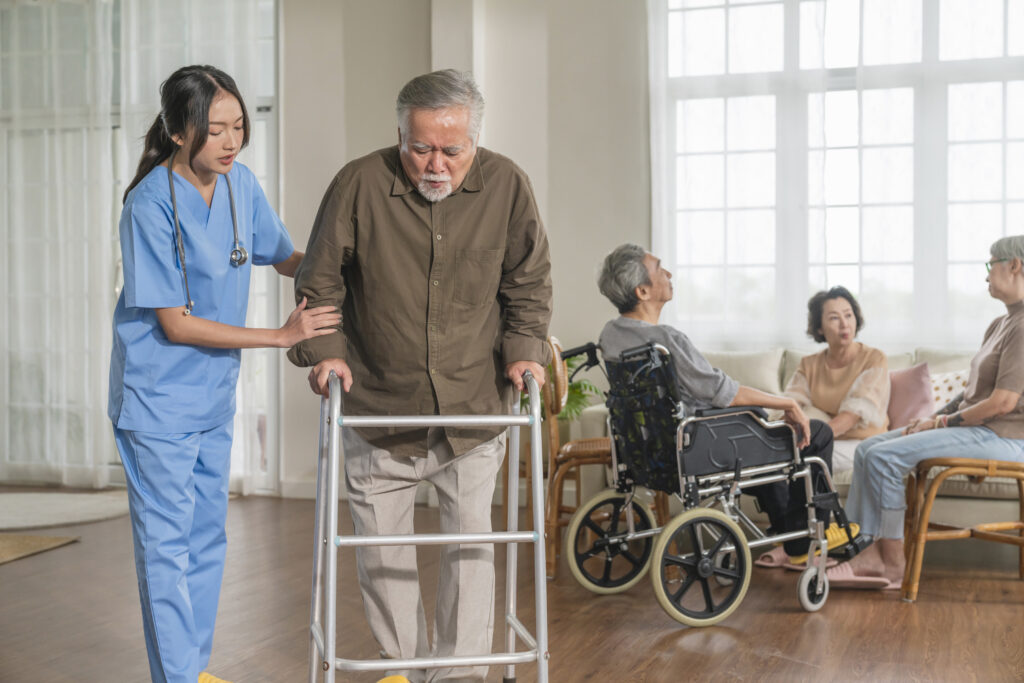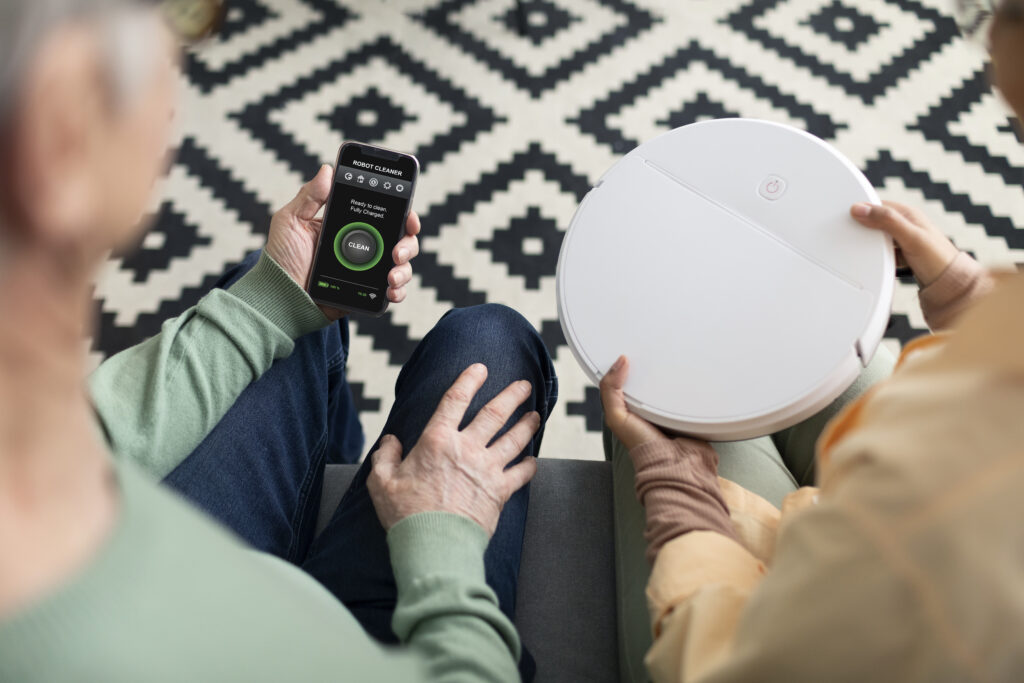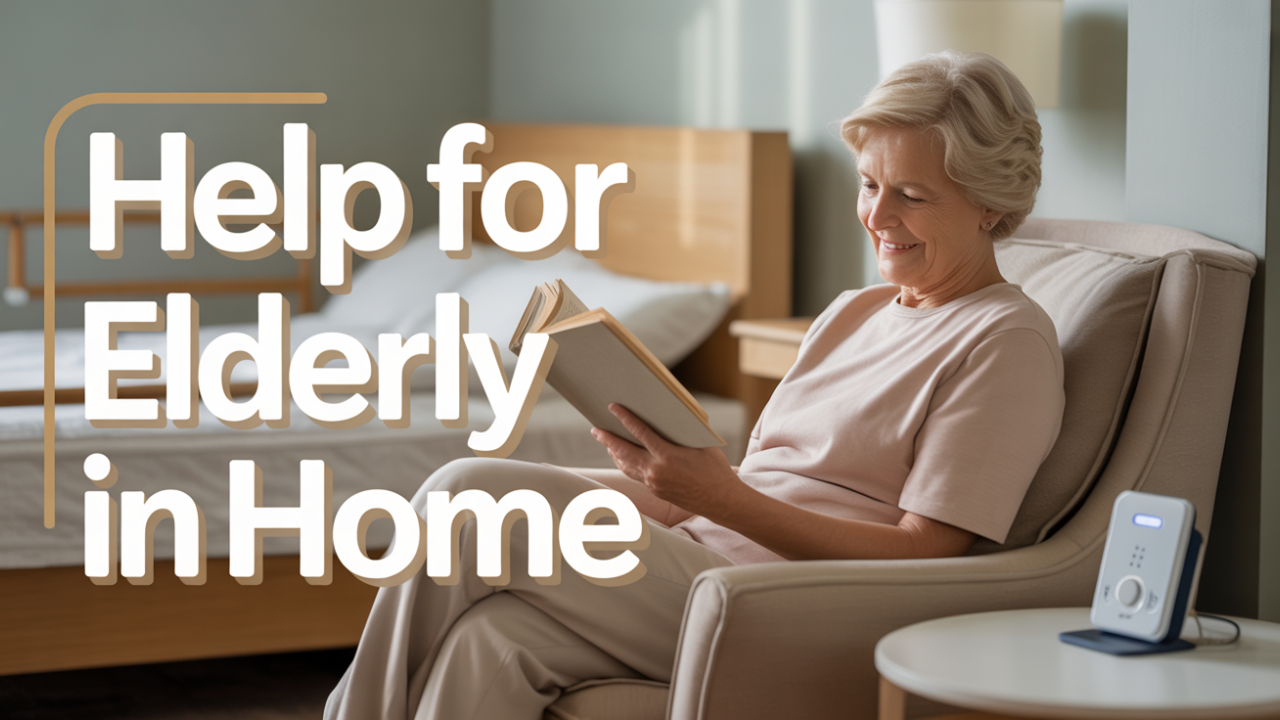Help for the elderly at home ensures that elders can live safely, pleasantly, and freely in their own place. This guide shares unique tips and affordable tools to create a senior-friendly home, from mobility aids to smart devices. Whether you’re a caregiver or a loved one, these actionable ideas will enhance their quality of life while keeping safety first.
Table of Contents
Why Help for Elderly in Home Matters
Aging in place helps older individuals keep living in familiar settings, which boosts their moods and independence. However, homes often need adjustments to ensure safety and accessibility. Simple tools like grab bars or voice-activated devices can make a huge difference without breaking the bank.
Benefits of Home-Based Care
- Emotional Comfort: Familiar settings reduce stress and promote happiness.
- Saving money: Home care is sometimes less expensive than assisted living facilities.
- Independence: Seniors maintain control over their daily routines.
Creating a Safe Home Environment
Safety is the cornerstone of help for elderly in home. Small adjustments can help prevent accidents and increase mobility. Here are some tips for making a senior’s house safer.
Enhance Lighting
Poor lighting increases fall risks. Motion-sensor lights in hallways, bathrooms, and staircases ensure seniors can see clearly at all times.
Clear Tripping Hazards
Remove clutter, secure rugs with double-sided tape, and organize loose cords. A tidy home prevents accidents.

Adapting Home Layout for Accessibility
A well-organized home layout is key to providing help for elderly in home. Rearranging furniture to create wide, open pathways makes navigation easier, especially for seniors using walkers or wheelchairs. To prevent strain, keep regularly used objects such as dishes or clothing within easy reach. Consider lowering shelves or using pull-out drawers in kitchens and bathrooms for convenience. These improvements increase independence while lowering the chance of damage.
Mobility Aids for Elderly at Home
Mobility challenges can limit independence, but the right tools empower seniors to move confidently.

Walkers for Stability
Lightweight, foldable walkers provide balance support for seniors with mobility issues. They’re perfect for navigating small spaces at home.
Wheelchairs for Comfort
For seniors with limited mobility, wheelchairs offer freedom. Choose lightweight models with cushioned seats for daily use.
Canes for Added Support
Canes are basic but helpful for elderly who require minimum assistance. Look for ergonomic designs with non-slip tips.
Technology to Simplify Elderly Care
Smart devices ease daily tasks and give caregivers peace of mind. Technology is a game changer for helping the elderly at home.

Voice-Activated Assistants
Even with limited mobility, seniors may use devices like Amazon Echo to control lighting, make reminders, and ask for help hands-free.
Medical Alert Systems
Wearable alert systems connect seniors to emergency services with a button press, ensuring help is always available.
Smart Home Security
Video doorbells and cameras allow caretakers to watch seniors remotely, assuring their safety even when they are alone.
Preparing for Emergency Situations
Emergencies can happen, and help for elderly in home means being prepared. Create an emergency kit with essentials like a flashlight, batteries, and a first-aid kit, stored in an accessible spot. Write down important contacts, including doctors and family members, and keep them near the phone. Teach seniors how to use their medical alert system or voice assistant in a crisis. Practicing these steps ensures everyone feels confident and secure.
Daily Living Aids for Seniors
Small tools can simplify everyday tasks, from cooking to dressing, making life easier for seniors.
Adaptive Kitchen Utensils
Non-slip grips and ergonomic utensils help seniors cook safely and independently.
Dressing Aids
Button hooks, zipper pulls, and long-handled shoehorns make it easier to get dressed.
Bathing Aids
Shower chairs and portable shower heads boost bathroom safety and comfort.
Supporting Nutrition and Meal Planning
Good nutrition is essential for seniors, and help for elderly in home includes making meals easy and healthy. Prepare simple, balanced meals in advance and store them in portioned containers for convenience. Use non-slip cutting boards and lightweight cookware to make kitchen tasks safer. Maintain hydrated by keeping a water bottle within reach. Consult a dietitian if dietary restrictions apply to ensure meals meet their health needs.
Emotional and Social Support for Seniors
Help for elderly in home goes beyond physical needs. Emotional well-being is just as important to prevent loneliness and depression.

Foster Social Connections
Encourage regular visits from family or friends. Local community centers often host senior-friendly events like book clubs or craft classes.
Technology for Staying Connected
Video call apps on tablets keep seniors in touch with loved ones, even from afar.
Encouraging Hobbies for Mental Stimulation
Mental stimulation is vital for seniors’ well-being, and help for elderly in home can include fostering hobbies. Simple activities like gardening, knitting, or puzzles keep the mind sharp and provide joy. Set up a cozy corner with good lighting for reading or crafting. If mobility is limited, try audiobooks or online classes tailored for seniors. These activities combat boredom and boost emotional health, making daily life more fulfilling.
Health and Wellness at Home
Maintaining physical health helps seniors stay active and independent. Simple tools and routines make a big impact.

Home Exercise Tools
Low-impact equipment like resistance bands promotes strength and flexibility without strain.
Medication Management
Pill organizers ensure seniors take medications on time, reducing health risks.
Managing Chronic Conditions at Home
Many seniors live with chronic conditions like arthritis or diabetes, and help for elderly in home includes supporting their health needs. Create a dedicated space for medical supplies, such as glucose monitors or joint braces, to keep everything organized. Set up a comfortable chair with good back support for daily health routines, like checking blood pressure. Work with healthcare providers to understand their condition and ensure home care aligns with medical advice.
Professional Care for Elderly at Home
Sometimes, professional help is necessary to provide comprehensive care. Here’s how to choose the right support.
Types of Home Caregivers
- Home Health Aides: Help with bathing, dressing, and basic housekeeping.
- Registered Nurses: Provide medical care like administering injections or managing chronic conditions.
Finding Trusted Caregivers
Look for certified professionals through platforms like Care.org. Always check reviews and references.
Budget-Friendly Elderly Care Tips
Help for elderly in home doesn’t have to be expensive. These cost-saving ideas keep care affordable.
DIY Safety Modifications
Use affordable tools like non-slip tape instead of costly renovations to make surfaces safer.
Leverage Insurance Benefits
Check if Medicare or private insurance covers mobility aids, medical alert systems, or home modifications.
Conclusion: Empowering Seniors at Home
Help for elderly in home creates a safe, comfortable, and independent lifestyle for seniors. Start with small changes like grab bars, smart devices, or adaptive tools, and consider professional care when needed. Use the Amazon search terms provided to find products and add your affiliate links to the suggested phrases. With these steps, you can transform any home into a senior-friendly sanctuary, ensuring your loved ones thrive.






